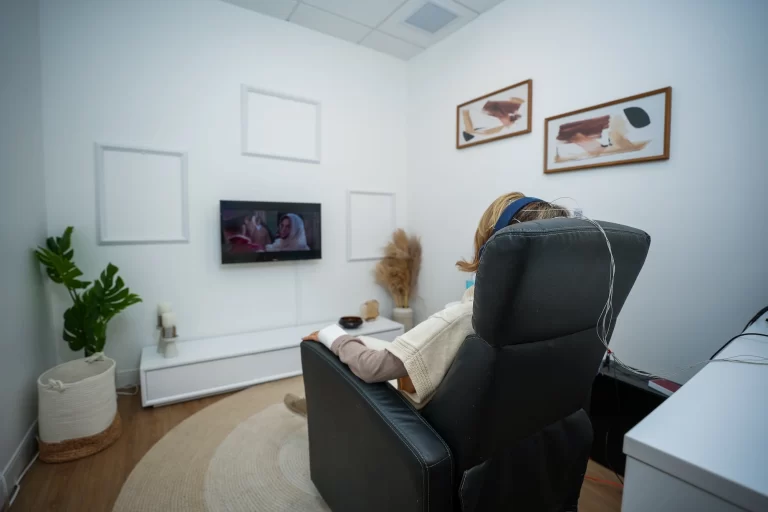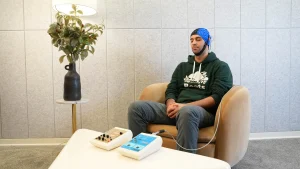As the long days of summer come to a close, families prepare to return to the routines of the academic year. September signals more than just school supplies and schedules, it brings a major shift in mental, emotional, and cognitive demand for students of all ages. While many look forward to reconnecting with friends and structured learning, the transition back to school can also be a significant source of stress, anxiety, attention difficulties, and sleep disruption.
In a post-pandemic world, these challenges have only intensified. Whether your child is entering a new grade, facing academic pressures, navigating social challenges, or managing a mental health diagnosis like ADHD or anxiety, the back-to-school season is the ideal time to refocus on their mental and emotional well-being.
Common Challenges During Back-to-School Season
1. Anxiety and Stress – Back-to-school anxiety is real—for children and parents alike. New teachers, unfamiliar environments, academic performance fears, and social pressures can trigger persistent worry and stress. In younger children, this may manifest as clinginess, stomachaches, or crying spells. In teens, it may show up as withdrawal, irritability, or lack of motivation.
2. Difficulty with Focus and Attention – Many children struggle to return to structured learning after the summer break. For students with ADHD or executive function challenges, maintaining concentration, staying organized, and completing assignments can be especially difficult.
3. Sleep Disruption – Summer sleep habits can be erratic, and the return to early wake-up times often leads to sleep deprivation. Poor sleep not only impairs academic performance—it also worsens mood regulation, memory, and immune function.
4. Screen Time Overload – Students today are more plugged in than ever. Excessive screen time (especially from gaming or social media) contributes to shortened attention spans, digital addiction patterns, disrupted circadian rhythms, and social withdrawal.

Myths and Facts: Focus, Learning, and Brain Health
Let’s debunk a few common myths:
❌ Myth #1: “Kids grow out of attention problems.”
✅ Fact: While some children develop coping strategies over time, attention issues like ADHD often persist without support. Early intervention can improve long-term outcomes.
❌ Myth #2: “A child who does well in school can’t have anxiety or ADHD.”
✅ Fact: High-functioning kids may mask their struggles, but internal stress, perfectionism, and emotional exhaustion are common.
❌ Myth #3: “You can’t improve focus without medication.”
✅ Fact: While medication can help in some cases, many non-invasive, drug-free options—like Neurofeedback—can be just as effective when guided by brain-based assessments like QEEG.
Back-to-Focus Solutions: How Elumind Can Help
At Elumind, we understand that no two brains are the same. That’s why we offer personalized brain-based assessments and interventions to help children and families optimize focus, manage stress, improve sleep, and thrive academically.
Here’s how we do it:
1. QEEG Brain Map: Understanding the Brain’s Blueprint – The first step in our process is conducting a Quantitative Electroencephalogram (QEEG)—a non-invasive brain map tool that records electrical activity from different brain regions.
What it shows: Patterns of underactivity or overactivity related to ADHD, anxiety, sleep disorders, learning challenges, trauma, and more.
Why it matters: Rather than guessing what a child is struggling with, we gain objective insight into the why. This informs a targeted treatment plan.
Example: A child struggling to focus and stay seated in class may show excessive theta waves in the frontal cortex—an indicator of attention dysregulation. With this insight, we can tailor neurofeedback protocols to address this specific imbalance.
2. Neurofeedback: Training the Brain to Regulate Itself – Neurofeedback is a safe, evidence-based brain training technique that helps the brain learn to function more efficiently.
How it works: The client is connected to sensors that monitor brainwave activity. When the brain produces desired patterns (e.g., focused, calm), it receives positive feedback through a visual or auditory cue. Over time, the brain learns to self-regulate.
Who benefits: Students with ADHD, anxiety, sleep disorders, or sensory processing issues experience improved focus, reduced hyperactivity, and better emotional control.
Real-world benefits: Improved academic performance, better test-taking, reduced impulsivity, improved classroom behavior, and greater emotional resilience.

3. Biofeedback: Regulating the Body to Support the Mind – Biofeedback helps clients learn how to regulate physiological functions like breathing, heart rate, and muscle tension—functions that are often thrown off by stress or anxiety.
In practice: Through guided breathing and visual tracking, children and teens learn to activate their parasympathetic nervous system (the “calm and digest” response).
Benefits: Better emotional regulation, improved sleep onset, and reduced anxiety symptoms—especially during school transitions or exam seasons.
Ideal for: Students with test anxiety, separation anxiety, or psychosomatic complaints (headaches, stomachaches).
4. Photobiomodulation (PBM): Energizing the Brain at the Cellular Level – PBM, or low-level light therapy, uses red and near-infrared light to stimulate brain cells, improve mitochondrial function, and reduce neuroinflammation.
Why it works: PBM enhances oxygenation, boosts cognitive clarity, and reduces stress-related fatigue.
Results: Sharper focus, quicker processing speed, and improved mood regulation.
Recommended for: Students who feel “foggy,” fatigued, or emotionally drained during school transitions or after long study hours.
Building Better Routines at Home
Parents play a critical role in supporting a successful transition back to school. Here are a few practical ways to support your child’s mental and cognitive health this season:
- Re-establish Routines – Structure is key. Start the bedtime and wake-up schedule 1–2 weeks before school begins to ease the transition.
- Prioritize Sleep Hygiene – Limit screen time at least one hour before bed. Use calming bedtime routines such as reading, light stretching, or mindful breathing.
- Create a Focus-Friendly Study Space – A consistent, clutter-free study space enhances attention and reduces stress. Include noise-canceling headphones or fidget tools if your child is easily distracted.
- Talk About Feelings Openly – Normalize emotions. Instead of saying “Don’t worry,” ask, “What’s worrying you the most?” Validate their fears, then explore tools to manage them together.
- Schedule Brain Wellness Support – A few sessions of Neurofeedback or Biofeedback can be a game changer for children struggling to adjust. Consider an initial Therapeutic Assessment at Elumind to understand your child’s brain and mental wellness profile.

Support for Parents, Too!
Let’s not forget: back-to-school season is also a time of transition and emotional labor for parents. It’s okay to feel overwhelmed.
If you find yourself struggling with anxiety, disrupted sleep, burnout, or parenting stress, our services are not just for kids. We offer Therapeutic Assessment, QEEG Brain Map, and brain trainings to help you stay regulated and show up as your best self for your family.
Final Thoughts: Back to School, Back to Focus
The back-to-school season offers a fresh start—but it also comes with its share of mental health challenges. Rather than waiting until mid-semester meltdowns, parents and caregivers can take proactive steps to support focus, resilience, and emotional balance.
At Elumind, we’re committed to helping your family build mental wellness from the inside out. Whether your child is struggling with focus, anxiety, sleep, or social transitions, we’re here with brain-based, non-invasive, and personalized solutions.
Ready to help your child start the school year strong?
🎓 Book a complimentary 15-minute phone consultation.
📍 Locations in North Vancouver, Langley & Kelowna
🌐 www.elumind.com
Help your child thrives this school year.








